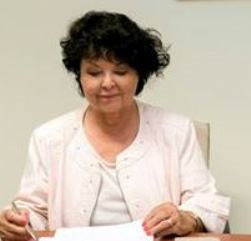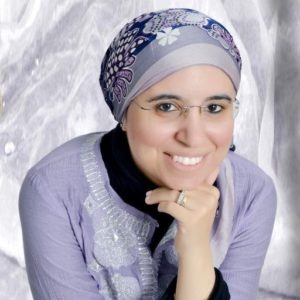We are proud to announce that our keynote speakers for the conference are:
 Francesca Helm – a researcher at the Department of Politics, Law and International Studies at the University of Padova, Italy. She has engaged in different types of virtual exchange programmes such as the Soliya Connect Program and Sharing Perspectives in various guises – as researcher, practitioner and also advocate.
Francesca Helm – a researcher at the Department of Politics, Law and International Studies at the University of Padova, Italy. She has engaged in different types of virtual exchange programmes such as the Soliya Connect Program and Sharing Perspectives in various guises – as researcher, practitioner and also advocate.
Keynote title: The long and winding road
The field of virtual exchange has made some important developments in terms of policy in the last few years and exciting times lie ahead. The European Commission has believed in the potential of our field to contribute to their agenda for youth and has invested, both politically and economically, in a pilot project for 2018, which aims to engage 8000 young people in Europe and southern Mediterranean countries in an Erasmus+ Virtual Exchange. Amongst the specific objectives of the pilot are encouraging intercultural dialogue and increasing tolerance, enhancing critical thinking and media literacy, and fostering soft skills development amongst young people.
In this talk I will wander down the long and winding road that has led to the recognition of virtual exchange and will discuss some important milestones on this journey as well as the many challenges we have faced. As we look ahead to the future of virtual exchange in increasingly complex, diverse contexts I will also explore some of the critical issues in our field, including our lack of attention to the social and political dimensions that feed into and also emerge from our practices and beliefs.
 Barbara Lewandowska-Tomaszczyk – a professor of linguistics working at Department of English Language and Applied Linguistics, University of Lodz, Poland. Her research interests are cognitive linguistics and corpus analysis and their applications in translation studies and computer-mediated communication.
Barbara Lewandowska-Tomaszczyk – a professor of linguistics working at Department of English Language and Applied Linguistics, University of Lodz, Poland. Her research interests are cognitive linguistics and corpus analysis and their applications in translation studies and computer-mediated communication.
Keynote title: University student identity, peer collaboration and self-authorship in FL education
The focus of the presentation is a study of the dynamics of university student identity on the one hand and their self-authorship and criticality development on the other. The analysis is conducted with reference to groups of English philology students at two Polish universities during a period of their direct international collaborative tasks carried out via CMC with students of US universities in the years 2015-2017. The first part of the presentation is a discussion of the concepts of student identity and the sense of criticality and self-authorship as the basic notions of the students’ personality development, followed by a description of the details of the international peer collaboration. The second part presents research methods (post-task surveys, interviews, questionnaires, open discussions and debates) applied to identify the students’ personal, intercultural, linguistic and translational development throughout the cooperation. As a point of reference aspects of the students’ other international contacts are also commented on, during their individual study periods, and/or their CMC contacts, with their peers from international universities by direct immersion during these periods (i.a., Erasmus programme). Bionotes, questionnaires and personal reflections of a few postgraduates, with full cycles of their study abroad periods are also presented and considered as the tertia comparationis in the discussion.
 Steve Thorne – a professor of Second Language Acquisition, based at the Department of World Languages and Literatures at Portland State University (USA), and secondarily, in the Department of Applied Linguistics at the University of Groningen (the Netherlands). His research utilizes cultural-historical, usage-based, distributed and critical approaches to language development, often with a focus on human interactivity in technology-culture contexts.
Steve Thorne – a professor of Second Language Acquisition, based at the Department of World Languages and Literatures at Portland State University (USA), and secondarily, in the Department of Applied Linguistics at the University of Groningen (the Netherlands). His research utilizes cultural-historical, usage-based, distributed and critical approaches to language development, often with a focus on human interactivity in technology-culture contexts.
Keynote title: From culture to ‘culturing’ in online intercultural exchange
In digital as well as physically co-present contexts, the capacity to successfully and respectfully communicate and collaborate across cultural and linguistic borders is widely recognized as a necessary 21st century skill. Focusing particularly on technology-mediated interaction, this presentation traces a 25-year arc of scholarly inquiry and pedagogical innovation in the area of Online Intercultural Exchange (OIE). I describe select projects that illustrate the value of OIE for increasing attention to language form, making visible aspects of grammar for meaning making, and the value of understanding language as primarily a semiotic resource for the development and maintenance of relationships of significance. I will also discuss the importance of the cultures-of-use of digital technologies (Thorne, 2003, 2016) and will provide pedagogical suggestions relating to language learning and intercultural communication ‘in the wild’ (Thorne, 2010). Throughout, emphasis is placed on the complex relationships linking methodology to findings (research) and theory to practice (pedagogy).
 Maha Bali – Associate Professor of Practice at the Center for Learning and Teaching at the American University in Cairo. She is an open and connected educator, with research and teaching interests in open education, critical digital pedagogy and intercultural learning. She is the co-founder of Virtually Connecting, and an editor at the journal Hybrid Pedagogy. She is a Prof Hacker and DML Central blogger. She also has her own blog http://blog.mahabali.me and Tweets at @bali_maha
Maha Bali – Associate Professor of Practice at the Center for Learning and Teaching at the American University in Cairo. She is an open and connected educator, with research and teaching interests in open education, critical digital pedagogy and intercultural learning. She is the co-founder of Virtually Connecting, and an editor at the journal Hybrid Pedagogy. She is a Prof Hacker and DML Central blogger. She also has her own blog http://blog.mahabali.me and Tweets at @bali_maha
Keynote title: Flipping the script on intercultural learning.. And other stories
We go through intercultural learning experiences, face-to-face or online, with expectations of what might work best, how it might work, and how best to respond if it doesn’t work out. In the past couple of years, however, I’ve had many of my assumptions about intercultural learning (the process of learning about the other and learning about oneself in the process) turned upside down. In this keynote, I will share some of my own personal experiences with virtual and in-person intercultural interaction, as well as those of my students and others. I’ll also invite the audience to share their own stories, should they have them.
